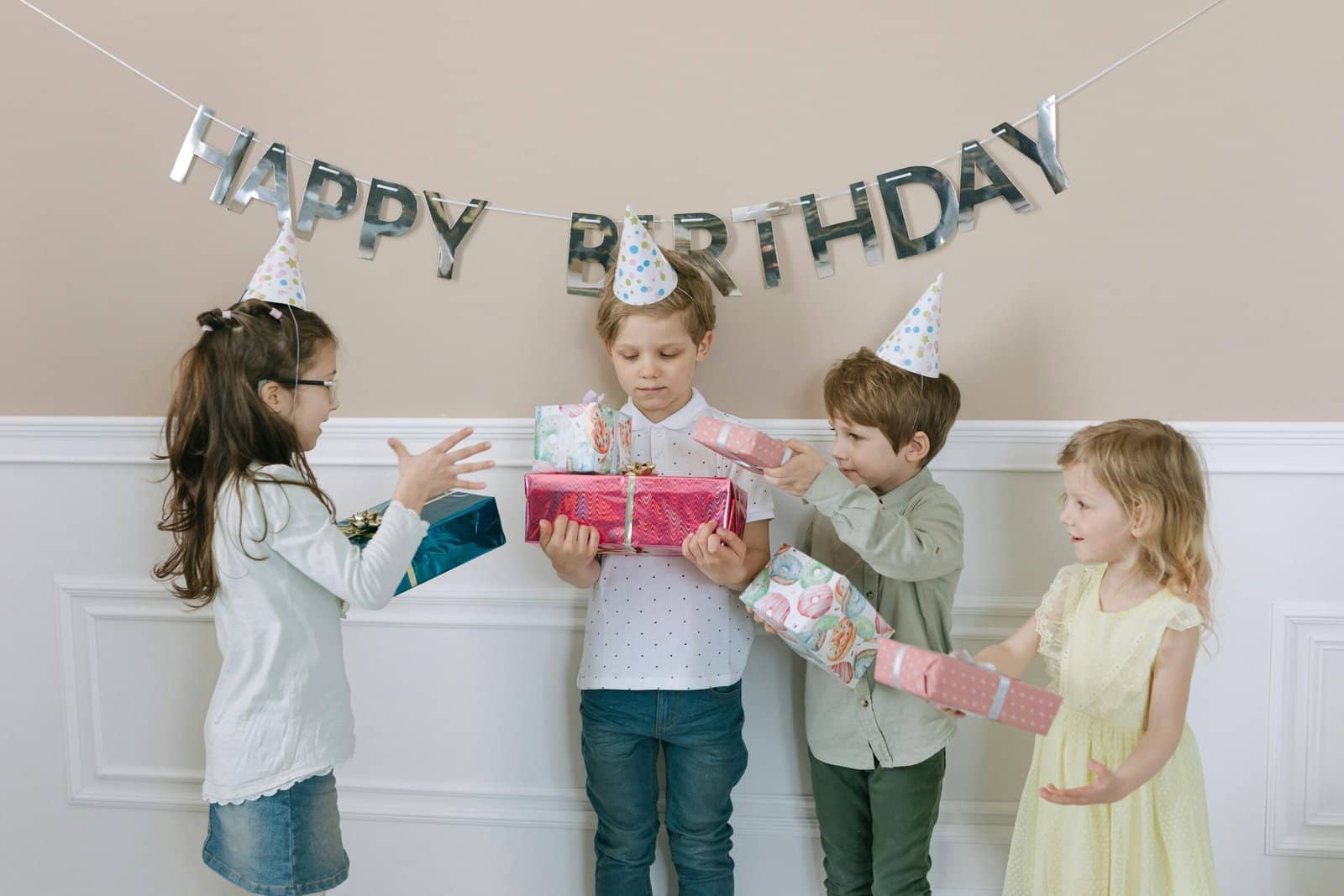10 Positive Parenting Tips That Don’t Require a Calm Voice or Clean House
If you’ve ever Googled positive parenting tips while hiding in the bathroom from a tiny human in a cape, welcome. You’re exactly where you need to be. This isn’t the kind of positive parenting advice that assumes your house smells like lavender and everyone speaks in gentle affirmations. This is for the parents who try—who really try—to be patient, kind, and connected… while stepping over crackers, dodging toy swords, and reheating the same cup of coffee four times.
Positive parenting is about connection over correction, empathy over yelling, and consistency over chaos—but let’s be honest, sometimes you just need something that works between meltdowns and laundry loads. This article is packed with practical, laugh-through-the-tears positive parenting tips that meet you right where the mess is. And because I know we barely have time to pee alone, I’ve put everything into a quick and printable positive parenting PDF you can stick on your fridge—or crumble into your diaper bag for emergencies.
Let’s do this. No perfect parenting required.
Table of Contents

If you’re looking for positive parenting tips with a side of chaos and cold coffee, don’t miss this laugh-out-loud guide to surviving the messy moments: 10 Funny Parenting Advice That Actually Works. Because sometimes the best parenting wisdom comes with spaghetti in your hair.
What Is Positive Parenting, Really?
Let’s get something straight: positive parenting isn’t about turning into a soft-spoken zen master with a Pinterest-perfect routine. It’s not about sugarcoating behavior or never saying no. Real positive parenting advice is rooted in one simple idea—connection before correction.
At its core, positive parenting is about treating your child with respect, even when they’re acting like a tiny, unreasonable landlord who just evicted your patience. It’s about empathy, clear boundaries, and helping your child learn how to behave rather than just punishing them when they don’t. Think less “control” and more “coach.”
You’re still the parent. You still set the limits. But the focus shifts from stopping bad behavior to teaching better ways to express big feelings. Instead of shouting “Stop it!” when your toddler body-slams the dog, you might say, “You’re excited, but we use gentle hands with the dog.” (Do you still want to scream into a pillow? Absolutely. But now you’re doing it with emotional intelligence.)
The point of all this? To raise kids who feel secure, seen, and safe—even when they mess up. And let’s be honest: that goes for us, too. Positive parenting isn’t about perfection. It’s about progress. It’s about trying, failing, trying again, and maybe laughing a little in between.
It’s parenting with compassion—but also a sturdy voice and a realistic bedtime. And that’s the kind of positive parenting advice we can actually use.
Let’s be real—positive parenting tips mean nothing when guests are five minutes away and your house looks like a toy tornado. Here’s how I fake a clean home just in time: Last Minute House Cleaning: 10 Things I Shoved in the Closet.
Why Positive Parenting Doesn’t Have to Be Quiet or Clean
Let’s kill the myth right now: positive parenting tips do not require angelic patience, a spotless living room, or a child who greets you each morning with gratitude and a spreadsheet of their feelings.
In fact, most of the time, positive parenting happens in the trenches—mid-meltdown, covered in yogurt, with one sock on. It’s not about being calm all the time. It’s about choosing connection even when your eye is twitching and your toddler is screaming because their banana broke in half.
This is not the land of perfection. This is the land of “I’m doing my best not to completely lose it while also teaching you how to be a decent human.”
Real positive parenting is loud. It’s messy. And it’s full of attempts that don’t always stick the landing—but still matter. Because what makes these positive parenting tips powerful isn’t how gracefully you deliver them. It’s that you tried at all. It’s that you paused, took a breath, and offered understanding instead of just reaction.
So yes, positive parenting can totally happen in a house that looks like a toy tornado hit a snack aisle. Welcome to the club.
Look, I can’t control my toddler’s emotions, but I can control how many Goldfish crumbs end up under the couch. This robot vacuum runs while I chase small humans around, and honestly? It’s the only member of the household that cleans up without complaining. One of my favorite positive parenting tips? Outsource the floor.
Some days, even the best positive parenting tips feel useless against a tiny dictator in dinosaur pajamas. If you’re deep in the trenches of toddler demands, this will feel painfully familiar (and a little too accurate): Demanding Toddler Behavior: How to Survive the Sass.
Real-Life Positive Parenting Tips (That Work in the Wild)
We used a real hair dryer as white noise for two years. Not kidding—two full years. We burned through three of them. THREE. Our electric bill sighed every night. Then, one night deep into a sleep regression spiral, I found this white noise machine. It’s compact, cordless, and actually soothing without the risk of frying another appliance. If you’re serious about sleep and done with makeshift hacks, this is one of those positive parenting tips I wish I’d known sooner.
These aren’t your average positive parenting tips—they don’t require perfect timing, a soothing voice, or a magical unicorn child. These are the kind of strategies you can use when your house looks like a toy store exploded and your patience is hanging by a Goldfish cracker.
Each one is designed for real parents in real chaos, grounded in positive parenting advice but served with a side of humor and grace.
Let’s dive in—mismatched socks and all.
Narrate Instead of Lecture
One of the most underrated positive parenting tips? Talk like a preschool sports commentator.
When your kid is mid-meltdown because their sock “feels weird,” resist the urge to launch into a lecture about gratitude or sock elasticity. Instead, try narrating what’s happening, like you’re calmly describing a nature documentary.
“You’re mad. You wanted the red cup. And now you’ve thrown the blue cup across the kitchen. That makes sense—you really had your heart set on that red one.”
Sounds ridiculous, right? But here’s the magic: kids feel seen. Understood. Like someone actually gets how devastating the wrong sippy cup can be.
We’ve tried all kinds of positive parenting tips—but when all else fails, I pull out the cup lineup. These stainless steel toddler cups come in different colors, which means I can offer choices without negotiating world peace. “Do you want the green one or the blue one?” feels like a parenting win… even if I already know whichever one I suggest first will be wrong. We keep four on hand just to survive the emotional rollercoaster that is beverage selection.
You’re not excusing the behavior—you’re naming the feeling underneath it. It slows the moment down. Sometimes it diffuses the tantrum. Sometimes it doesn’t. But it always strengthens connection—and that’s the whole point of positive parenting advice that works.
Also? It gives you something to do besides yelling or hiding in the pantry.

Validate the Feeling, Not the Behavior
Here’s one of those positive parenting tips that sounds simple… until your child is screaming because their waffle is “too loud.”
Your job? Acknowledge the feeling, not the chaos it creates. Say things like, “It’s okay to feel frustrated,” or “You’re really disappointed about that.” What you don’t have to say is, “Sure, throw your breakfast across the room.”
This is the heart of positive parenting advice—teaching kids that all emotions are allowed, but not all actions are. When kids feel heard, they calm faster. And when you stay calm enough to validate their emotional hurricane, you’re modeling the exact regulation you want them to learn.
Bonus? It’s disarming. Half the time, when I say “You’re really mad about your shoes today,” my toddler just yells, “YES!” like I finally cracked the code. No more screaming. Just mutual confusion and a weird kind of relief.
Use Fewer Words. Say Them Slower.
This one might sting a little—especially if you’re the type to explain, over-explain, then re-explain why shoes are not optional in January. But here’s the thing: kids under five process words like your Wi-Fi on a bad day—slow, spotty, and not reliable under pressure.
One of the most effective positive parenting tips is to say less, then say it again—but slower. Instead of launching into a TED Talk on hygiene when your child licks the window, try:
“Windows are not for licking. Let’s use our tongue for snacks.”
Period. Then stop talking.
The quieter and calmer you speak (even if your internal voice is screaming), the more your words land. Kids don’t tune out because they’re rude—they tune out because we give them too much at once.
Short phrases, soft tone, strong eye contact. That’s the recipe. It’s not easy when you’re tired and your kid is licking glass, but it’s positive parenting advice that actually works.
Focus on What to Do—Not Just What Not to Do
We’ve all said it: “Don’t hit your brother!”
And we’ve all watched it go absolutely nowhere.
One of the most powerful positive parenting tips? Tell them what to do instead. Their brains are still developing — “don’t” gets filtered out faster than your will to cook dinner.
Instead of “Stop yelling!”, try “Let’s use a calm voice.”
Instead of “Don’t grab!”, say “Ask first if you want a turn.”
This kind of positive parenting advice shifts the energy. You’re not just shutting them down — you’re giving them a roadmap. You’re building skills instead of just managing chaos. And yes, it takes a minute longer. But it also saves the 12-minute screaming match that usually follows.
The best part? It helps you, too. Focusing on what to do keeps your brain from spiraling into “Why is this happening again?” land.
It’s not magic. But it’s parenting in the direction of sanity.
Offer Choices Within Limits
Here’s one of those positive parenting tips that feels like trickery—but it’s actually pure gold: give them choices you can live with. Not “Do you want to brush your teeth?” but “Do you want to brush before or after pajamas?”
The secret? You’re still steering the ship—they just get to pick the color of the life vest.
Positive parenting tips isn’t about letting your toddler run the show. It’s about reducing power struggles by offering controlled freedom. You create the boundary, but they feel a sense of control. Everyone wins. (Sometimes.)
Try it during meltdowns, transitions, or any time you’re teetering on the edge of a juice-box-fueled showdown. The choice calms the chaos. It gives them structure without shouting.
And if they refuse both options? That’s okay. Smile, breathe, and repeat: “You can choose, or I’ll choose for you.” Then sip your coffee like the quietly powerful wizard you are.

I used to say “five more minutes” and then just… wing it. Chaos. Tantrums. Clock confusion. Then we started using this rainbow countdown timer, and suddenly my toddler knew what five minutes actually felt like. Now we use it for cleanup, screen time, even brushing teeth. It’s visual, silent, and weirdly respected like some kind of toddler truth oracle. If you’re building routines that stick, this one’s a must.
Pause Before Reacting
In the heat of the moment—spilled juice, shouting match, permanent marker on the dog—your instinct is to react fast and loud. But one of the simplest (and hardest) positive parenting tips is this: pause.
Just a few seconds. A breath. A blink. A step into the hallway if needed.
This micro-moment is where the magic happens. It gives your nervous system a second to stand down. It gives your brain a chance to choose response over reaction. And it shows your child—without a single lecture—what self-control actually looks like.
Positive parenting advice doesn’t say you won’t get angry. It says you don’t have to act from your anger. And when you pause, you teach by example.
I’ve had moments where I literally whispered, “I’m going to the bathroom for a second so I don’t yell.” And you know what? My kid waited. The meltdown paused. It didn’t fix everything—but it shifted the energy.
In that pause, you parent from your values, not your volume.
Catch the Good Stuff Out Loud
Let’s be real: most of our day is spent correcting things—“Don’t climb that,” “Stop throwing cheese,” “For the love of snacks, just SIT.”
But one of the most overlooked positive parenting tips? Praise what’s going right—and say it loud enough for them to hear it.
Not vague praise like “Good job,” but targeted, clear, and sincere:
“You put your shoes away without me asking. That was super helpful.”
“I noticed you stayed calm when your tower fell—that was hard!”
Kids don’t always know what behaviors to repeat unless we highlight them. And they love to feel seen for more than their chaos.
This is the kind of positive parenting tips that builds connection and confidence. You’re not bribing or sugarcoating—you’re reinforcing. You’re catching them in the act of becoming the human you hope they’ll be.
Bonus? You start seeing the good more, too. Even when there’s syrup on the dog.
Get on Their Level—Literally
This might be one of the simplest positive parenting tips out there, but don’t underestimate it: bend your knees, make eye contact, and speak to them face-to-face. That one little shift? It changes everything.
Kids are tiny, and the world looks huge to them. So when we tower above them—especially when we’re frustrated—it can feel intimidating. Getting down on their level softens the moment. It makes you a teammate, not a threat.
It’s the kind of positive parenting tips that seems too easy to matter… until you try it during a meltdown and see the storm begin to pass.
Eye-level communication shows them you’re listening. It slows you down, too. You can’t yell and kneel at the same time—trust me, I’ve tried.
So next time your child’s about to launch into their fourth emotional monologue of the morning, crouch down. It might not solve everything, but it might help you both feel more human.
Build In Routines That Feel Like Rituals
Routines keep the chaos at bay—but rituals add warmth. And one of the most meaningful positive parenting tips is this: turn the everyday into something sacred (or at least mildly enjoyable).
Instead of just “putting them to bed,” you sing the same silly song while tucking them in. Instead of a rushed goodbye, you invent a secret handshake. These little rituals become anchors—emotional signals that say, “This moment matters. You matter.”
Positive parenting advice isn’t all about behavior management—it’s about building connection through consistency. Routines create predictability, which makes kids feel safe. Rituals add soul.
It doesn’t need to be elaborate. A two-second “you got this” chant before brushing teeth? That counts. A high-five before leaving for school? Also counts.
These rituals might seem small now, but they’ll be the weird, wonderful moments they remember later. Possibly with therapy—but still, memories.
I actually got this little otter when my daughter was born, and like most baby things, it ended up in the “maybe later” bin. Well—later finally came. Somewhere around age two, when emotions got big and bedtime became negotiations, we brought it out. And wow. The gentle breathing motion instantly grabbed her attention. She calls it “Otti,” and he now sleeps beside her every night like a tiny zen master. One of the best positive parenting tips I can give? Don’t toss the baby gifts—some of them are just waiting for their moment.
Forgive Yourself Loudly
Let’s end with one of the most overlooked positive parenting tips: forgive yourself—out loud, in front of your kids, and as often as needed.
Because you will mess up. You’ll yell. You’ll snap over crumbs or crayons or that one shoe that’s always missing. And when you do, don’t just stew in guilt—model repair.
Say, “I was really frustrated and I yelled. That wasn’t okay. I’m sorry. I love you. Let’s start over.”
This is positive parenting advice that doesn’t live in the land of perfection. It lives in the real world—where you’re human, they’re human, and grace matters more than flawless execution.
When your child sees you own your mistakes and try again, they learn that messing up doesn’t make someone bad. It just makes them human. And humans keep growing.
So yes—speak kindly, breathe deeply, offer choices…
And when you inevitably forget all of that and lose it by 7:42 a.m.?
Forgive yourself. Out loud. With love.

Looking to go beyond the basics? These positive parenting tips pair perfectly with this deeper dive into building strong parenting skills: Tips for Good Parenting Skills That Actually Stick.
Why These Positive Parenting Tips Actually Work
Let’s be clear—these positive parenting tips aren’t magic spells. They won’t stop every tantrum, make your toddler instantly reasonable, or prevent your preschooler from sobbing over the wrong color cup. What they do is build trust, create connection, and slowly teach your child how to handle their big feelings in a safe way.
Positive parenting tips work because they’re rooted in respect, not control. They shift the focus from punishment to guidance. They turn power struggles into teachable moments—sometimes messy, often imperfect, but deeply meaningful.
You’re not just shaping behavior. You’re shaping your relationship. And over time, these small, consistent efforts become the emotional scaffolding your child stands on as they grow.
So even on the days when you feel like you’re failing—when your voice gets loud or your patience runs thin—remember this: every time you try again, every time you choose connection over chaos, these positive parenting tips are working.
They’re not about perfection. They’re about presence.
Grab Your Free Positive Parenting PDF
Because let’s be honest—when you’re in the middle of a meltdown (yours or theirs), you’re not going to scroll back through this post hunting for calm strategies. That’s why I’ve put together a simple, printable positive parenting tips PDF with all 10 tips, ready to tape to your fridge, shove in your diaper bag, or keep folded next to your emergency chocolate.
This positive parenting tips PDF is short, clear, and designed for real-life chaos—no fluff, no judgment, just practical reminders when you need them most.
Click below to download it and let the tips do the heavy lifting while you take a breath (or a bite of hidden snack).
Conclusion: It’s Not About Being Perfect—It’s About Showing Up
You don’t need a calm voice all the time. You don’t need a clean house. And you definitely don’t need to memorize parenting theories while your child screams because their banana “bent the wrong way.”
What you do need are a few positive parenting tips that work in the wild—when you’re tired, overwhelmed, and trying not to cry into your coffee. That’s what this list is for. Not to make you a perfect parent, but to remind you that you’re already a present one.
Every time you pause, connect, offer a choice, or apologize—you’re building something lasting. You’re creating safety, trust, and resilience, even on the messy days.
So print that positive parenting PDF, laugh when it all goes sideways, and remember: you’re doing better than you think. One sticky hug and unhinged bedtime at a time.
Your Turn—Let’s Keep It Real
Got your own positive parenting tips that saved your sanity? Or a moment that tested every ounce of your patience (and ended in laughter or snacks)? Drop it in the comments—I’d love to hear your chaos survival stories.
If this made you laugh, helped you breathe, or reminded you you’re not failing, share it with another tired parent. Bookmark it, pin it, or stick the positive parenting PDF to your fridge like a lifeline.
Because we’re all just winging it—with a lot of love, a little humor, and maybe some waffles on the floor.






